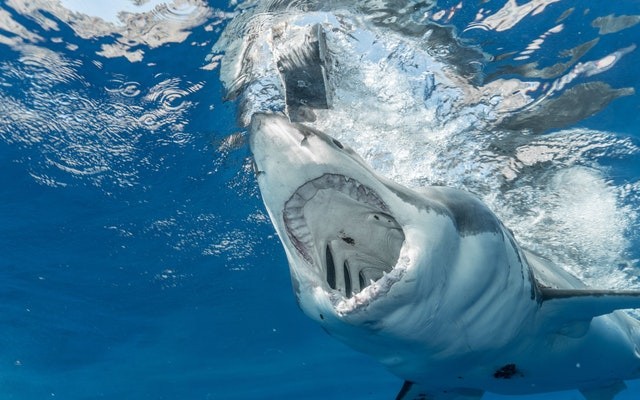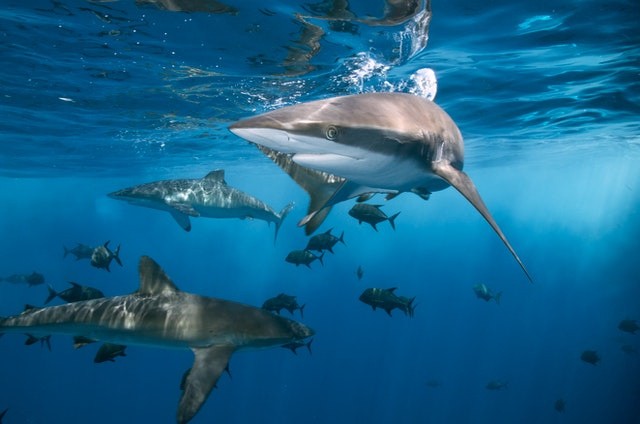The number of unprovoked shark bites increased in 2021, following three years of reduction worldwide.
The International Shark Attack File at the Florida Museum of Natural History published a report this week detailing 39 incidents of provoked shark bites, as well as nine fatalities.

Unprovoked Shark Attacks
According to the five-year global average, 72 unprovoked bites occur each year, but this is a stark contrast to the 52 confirmed bites recorded in 2020, a record low for a decade.
ISAF's Tyler Bowling believes that beach closures related to COVID-19 limitations are partly to blame for the trend's reversal.
The pandemic reduced shark attacks significantly in 2020. A more normal year, with a range of species biting at average rates and deaths from white sharks, bull sharks, and tiger sharks, was 2021.
In 2021, the majority of fatal shark attacks occurred in the South Pacific, where the incidence of unprovoked deaths from shark attacks remained high.
Australia, New Caledonia and New Zealand had six verified deaths, while South Africa, Brazil and the United States saw one incidence each. For unprovoked deaths, great white sharks (Carcharodon carcharias) were the most common offender, according to Phys.org.
Unprovoked incidents, defined as those that happened in the shark's natural environment without human provocation, are the focus of the IFAS's investigations of all recorded shark bites. Using this information, researchers can better understand and mitigate the natural behavior of the animals.
Countries with Highest Number of Bites
There were 47 reported shark bites in the United States in 2021, making up 64 percent of all cases worldwide. Most of these bites took place on the Atlantic coast, except five.
This year, Australia remained the second-highest country in the world for bites with 12, a decline from the 16 bites it averaged over the past five years.
As per NBC News, the largest number of deaths in 2021 was recorded in Australia, with three deaths, a decrease from last year's six. A total of three bites each occurred in Brazil and New Zealand; Canada, Ecuador, and St. Kitts and Nevis each experienced one.
After a year with no shark attacks in South Africa, shark bites returned in 2021. White shark sightings have declined since a pod of orcas (Orcinus orca), who are known to feast on sharks, moved into the area in 2017, when they were expected to be frequent off the coast of Cape Town.

What Might Have Caused the Increase in Shark Bites?
The number of people killed or maimed by sharks rose dramatically last year, although it is still significantly below the long-term norm.
Even in Florida, which has the second-highest growth rate of population in the United States, shark encounters are becoming increasingly prevalent. Deaths, on the other hand, are decreasing in frequency over time.
In general, fewer people have died from shark bites because of better beach safety protocols and a decrease in shark populations in coastal areas, according to Gavin Naylor, the director of the Florida Museum of Natural History's shark research program.
Also, there will be an uptick in white shark populations in 2020 and 2021 as a result of increased seal populations, which are a major food source for these sharks.
Surfers and boarders, who spend a large amount of time in and around surf zones, accounted for 51% of those who reported being bitten by sharks.
A variety of fishes use the tides to find new food and scavenge the shallow seafloor for plants and invertebrates on the marine coasts and estuaries. Sharks mistake humans for prey and feed on the smaller fish that attract them.
Sharks have a hard time spotting their prey in surf zones because of the turbulence and shallow water, Naylor said. Low-visibility water accounts for about 60 percent of the shark bites recorded.
Related Article : Experts Reveal Most Great White Shark Attacks on Humans are Cases of 'Mistaken Identity'
For more news, updates about sharks and similar topics don't forget to follow Nature World News!
© 2025 NatureWorldNews.com All rights reserved. Do not reproduce without permission.





